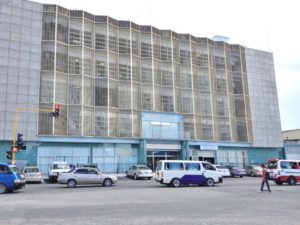
By Jarryl Bryan
Government has released the draft Natural Resources Fund Bill of 2018, which proposes among other things a 22-member Public Accountability and Oversight Committee that will oversee the management of the Fund and provide checks and balances.
According to the Bill, the Committee will include a media representative proposed by the Guyana Press Association (GPA). Other entities that will have to propose representatives include the Guyana Bar Association; the Guyana Extractive Industries Transparency Initiative (GY-EITI); Transparency Institute of Guyana Incorporated (TIGI), the Guyana Consumers’ Association and the various trade unions.
In addition, nominees will have to come from the Institute of Chartered Accountants of Guyana; the Private Sector Commission (PSC); the governing council of the University of Guyana (UG) and each of the 10 administrative regions.
In the case of the regions, the terms of these members will be for two years with the possibility of being reappointed for one more term. Members nominated by any other organisation besides Regional Democratic Councils (RDCs) will serve a single three-year term. The Bill specifically excludes persons such as Members of Parliament, Ministry staff, persons of unsound mind, ex-convicts and the bankrupt from serving on the Committee.
The Bill also lists the functions of the Committee, which will include monitoring and evaluating the compliance of Government and other officials related to the NRF, with the provisions of the Bill. They will also have to independently assess the management of the Fund and use of withdrawals, as well as facilitate public consultations on the NRF.
The Committee will be charged with “monitoring and evaluating whether the Fund has been managed in accordance with the principles of transparency, good governance, and international best practices, including the Santiago principles.”
The Santiago principles are a set of generally accepted principles and practices that reflect Sovereign Wealth Fund (SWF) investment best practices and objectives. They include expectations of a sound legal framework, well-defined mission, clearly defined rules for withdrawals, transparency, annual reporting and independent auditors.
Where transparency is concerned, the Bill stipulates that biannual reports on the Committee’s activities must be published on its website or Parliament’s website. In addition, the Committee must organise annual public consultations to update the public on its work.
The Bill adds that the Committee must “submit copies of its biannual reports to the President and to the National Assembly within 60 days after the end of the first half of each fiscal year, as well as within 60 days after the end of the second half of each fiscal year.”
While the subject Minister, in this case the Finance Minister, will have overall responsibility for the management of the Fund, the Bank of Guyana will have operational management responsibility. In addition, the Minister must obtain parliamentary approval for withdrawals.
“The amount Parliament shall approve as the withdrawal from the Fund for the next ensuing fiscal year shall be included in the annual budget and shall not exceed, for that year, the economically and fiscally sustainable amount plus any amount required for emergency financing,” the Bill states.
According to the Bill, the Fund will be held at the Bank of Guyana. However, the Fund itself will be managed independent of the Bank’s reserves. All budget requests must go through the Public Accounts Committee (PAC), with the monies being charged on the Fund.
The Fund
A SWF, which is what the NRF was previously known as, is a State-owned investment fund that is made up of surpluses from official foreign currency operations, proceeds of privatisations, governmental transfer payments, fiscal surpluses and/or receipts resulting from resource exports.



